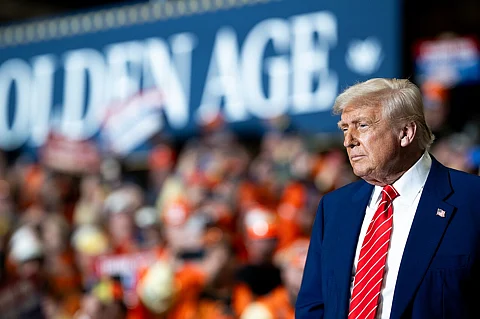

President Donald Trump signed a proclamation on Wednesday reinstating a revised version of his controversial travel ban, barring citizens from 12 countries from entering the United States. The policy, set to take effect on June 9, 2025, at 12:01 a.m. EDT, is part of a broader immigration crackdown during his second term.
The affected nations include Afghanistan, Myanmar, Chad, the Republic of the Congo, Equatorial Guinea, Eritrea, Haiti, Iran, Libya, Somalia, Sudan, and Yemen. Additionally, heightened restrictions will apply to travelers from Burundi, Cuba, Laos, Sierra Leone, Togo, Turkmenistan, and Venezuela.
“We will not allow people to enter our country who wish to do us harm,” Trump said in a video statement, emphasizing national security concerns. He indicated the list could be expanded based on evolving threats.
The move echoes Trump’s first-term travel ban, which initially targeted seven Muslim-majority countries in 2017 before undergoing multiple revisions amid legal challenges. The Supreme Court ultimately upheld a modified version in 2018.
President Joe Biden repealed the policy in 2021, calling it discriminatory. Trump’s latest proclamation cites inadequate vetting capabilities, high visa overstay rates, and uncooperative governments as justification for the restrictions.
The administration pointed to Sunday’s attack in Boulder, Colorado—where an Egyptian national allegedly threw a gasoline bomb at pro-Israel demonstrators—as evidence of the need for stricter controls. The suspect had overstayed his visa, though Egypt is not on the banned list.
Somalia’s U.S. ambassador pledged cooperation, stating the country was “ready to engage in dialogue” on security concerns. Meanwhile, Venezuelan officials condemned the restrictions, with Interior Minister Diosdado Cabello accusing the U.S. of “fascist” policies.
The ban has already disrupted plans for individuals like a 31-year-old Myanmar teacher accepted into a U.S. State Department exchange program. “I don’t know if my visa will still be processed,” she said, requesting anonymity due to her pending application.
Trump previewed the policy in an October 2023 speech, vowing to block entry from regions deemed high-risk. An executive order issued on January 20 mandated enhanced screening for foreign visitors.
The restrictions were first reported by CBS News, following Reuters’ March disclosure that the administration was considering measures against dozens of countries.